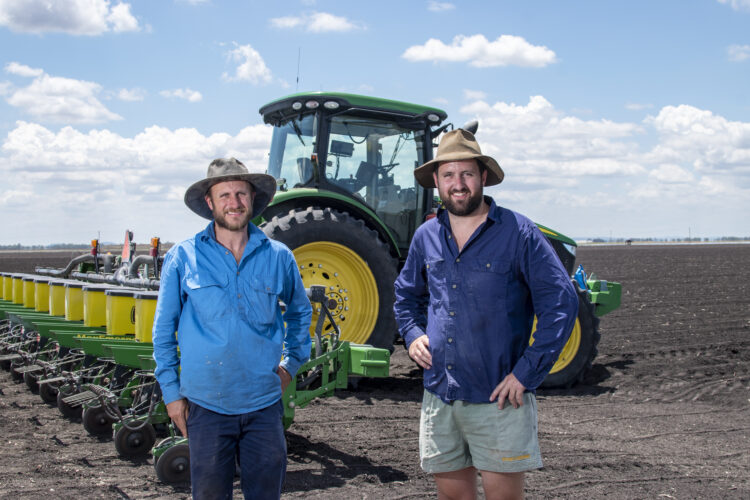
Spreading human effluent ‘biosolids’ across paddocks has significantly reduced the amount of synthetic fertiliser required for cotton farming brothers on the Darling Downs in Queensland.
Mark and Grant Porter are using treated human waste to fertilise their fields – and the results are astounding.
One application of biosolids provides enough nitrogen for two crops, and has good phosphorus value for many years to follow, Grant says.
The Porter family noticed significant positive results in the first year that they applied biosolids. There was an immediate response indicated by the crop vigour and colour throughout the season and there was also a good yield increase.
“The treated human waste contains slow releases nitrogen and high amounts of phosphorus, which is suited for cotton,” Grant said.
Since using biosolids, Grant said small top-ups of synthetic fertilisers are still required, but at a much lower rate.
“The crop seems to need this, we think that not enough of the biosolids phosphorus value is available to the plant in its smaller growth stages,” Grant said.
“The biggest challenge of using biosolids is getting it on your fields. There is only a small window, as you want the field to be dry as the machinery required to spread and incorporate the biosolids are heavy."
Grant said it wasn’t ideal to apply biosolids on standing stubble, and wind direction was also a key factor, so it didn’t impact any neighbouring houses.
“Trying to line this up with the availability is hard work, and often requires compromises,” Grant said.
